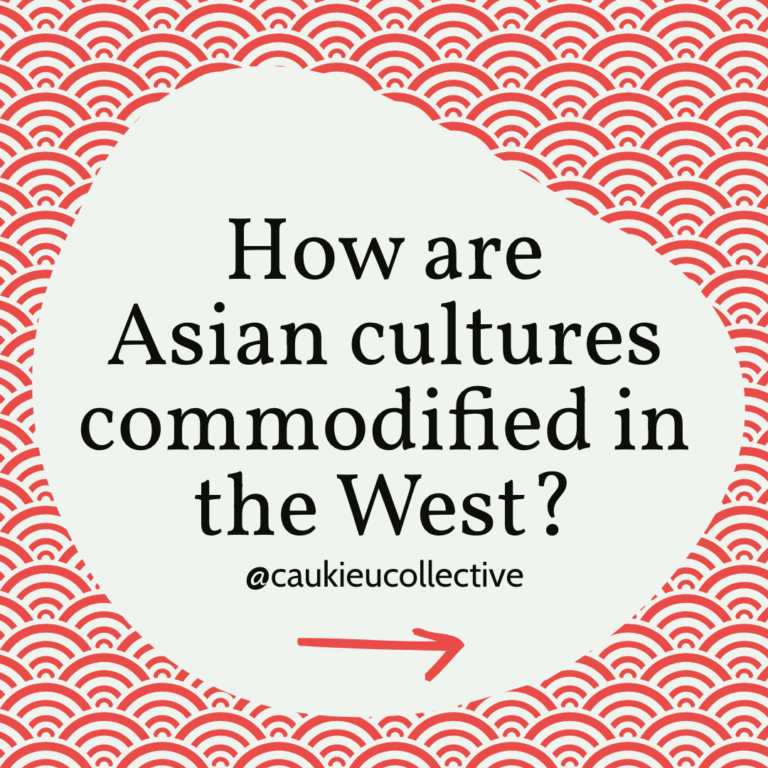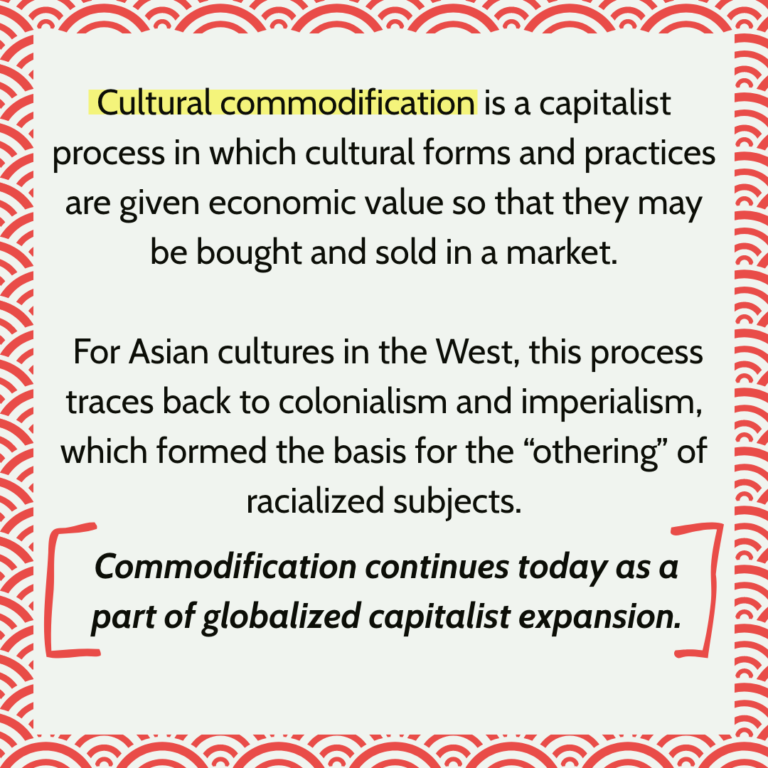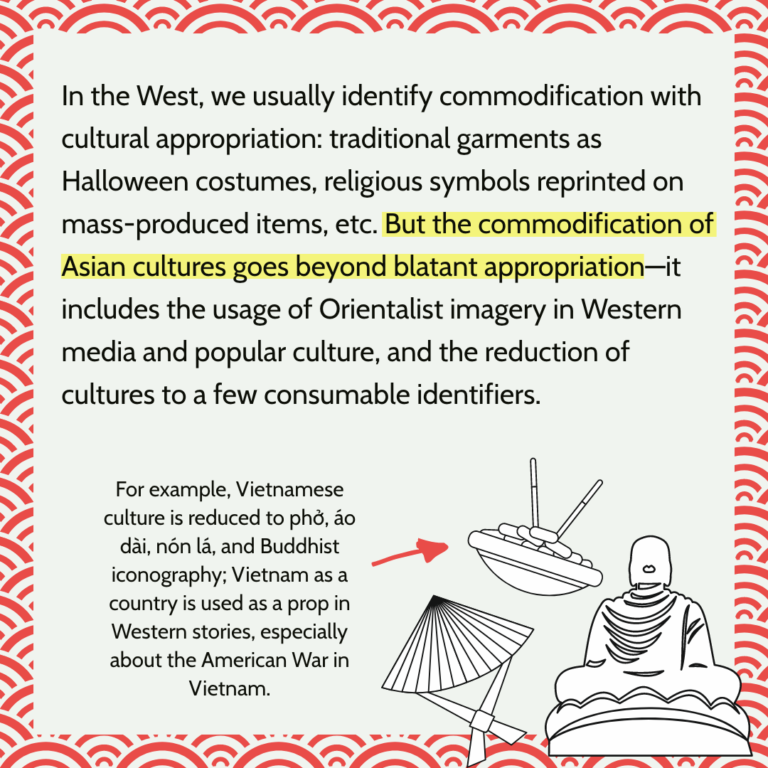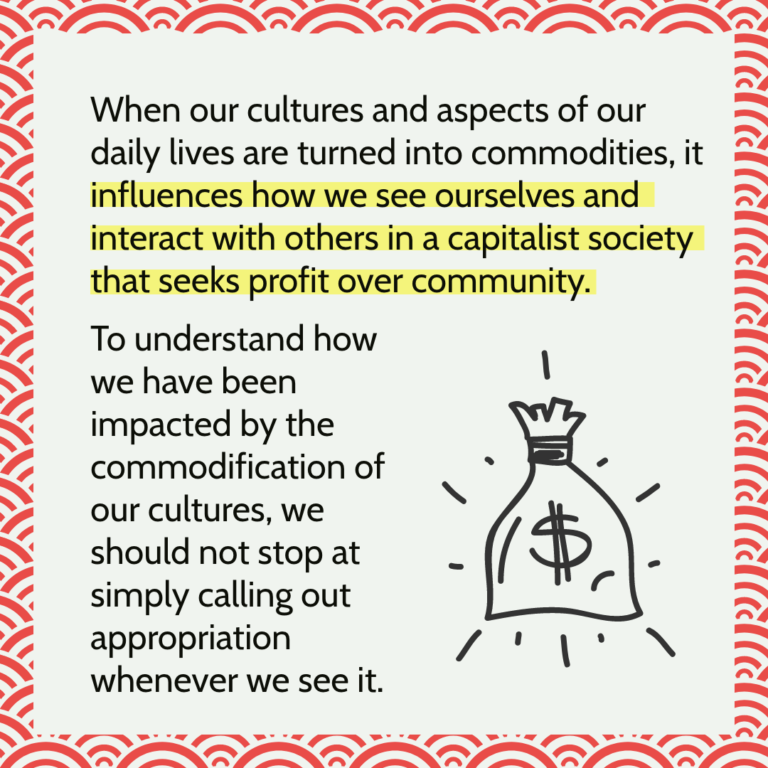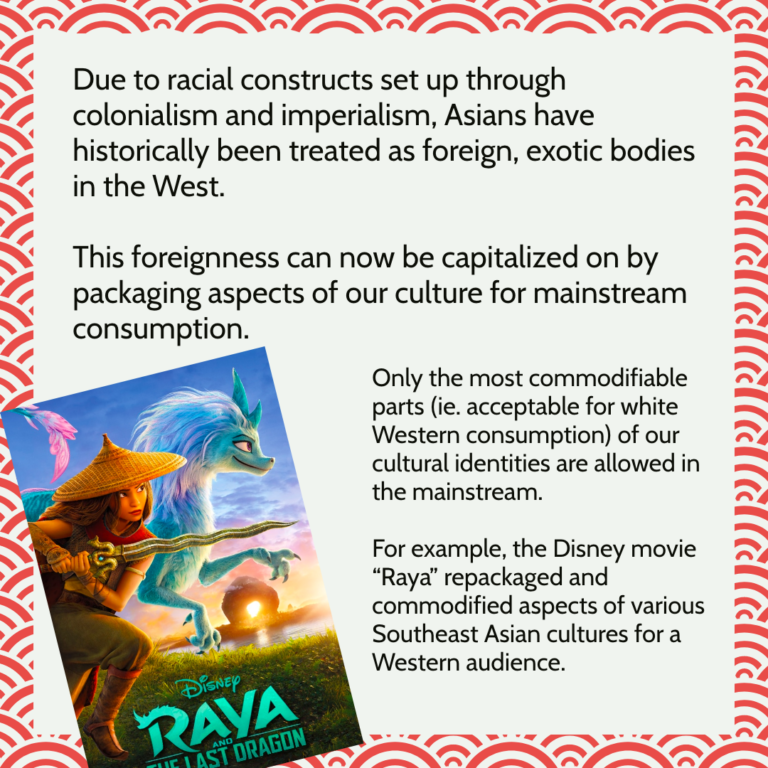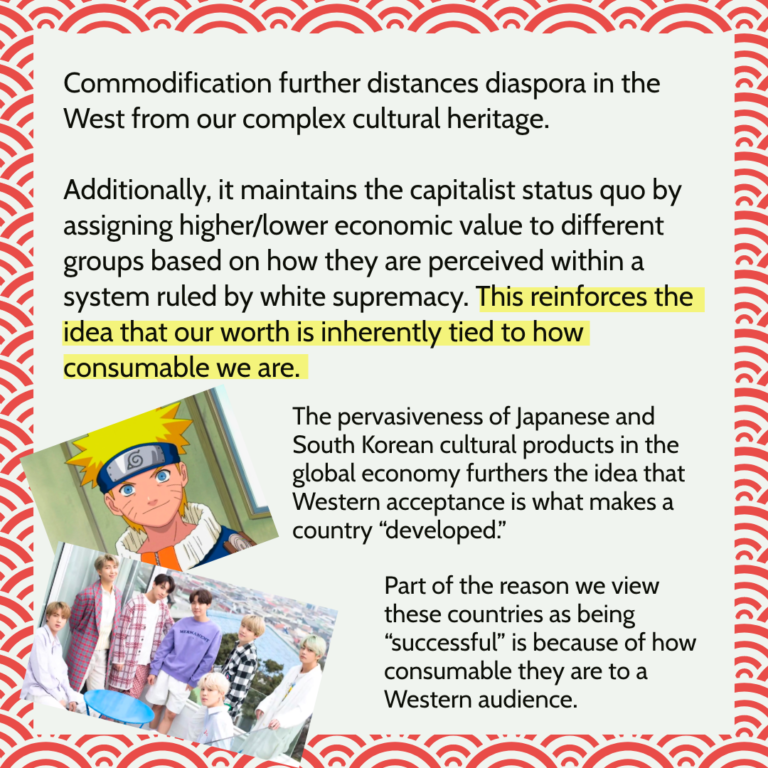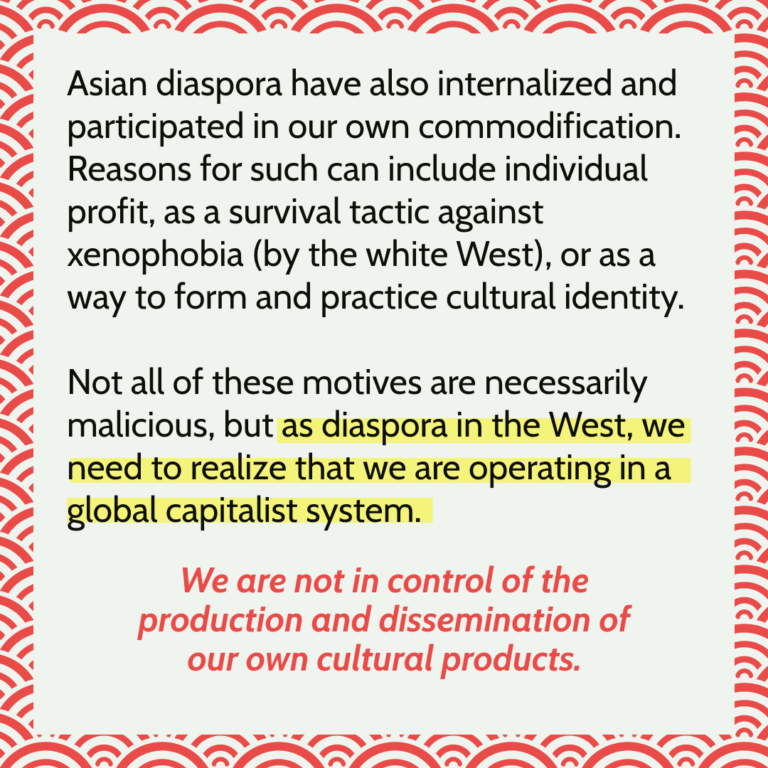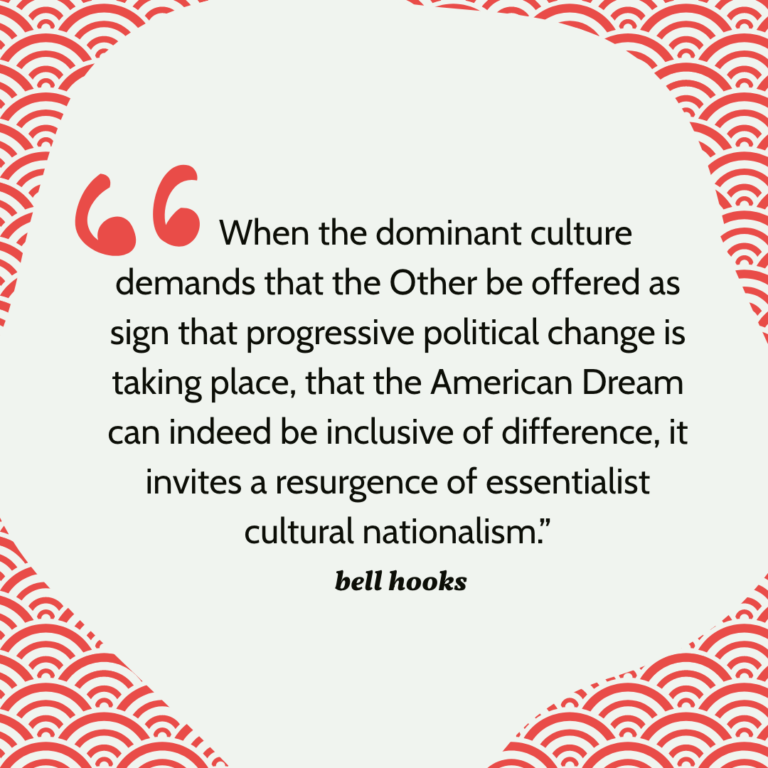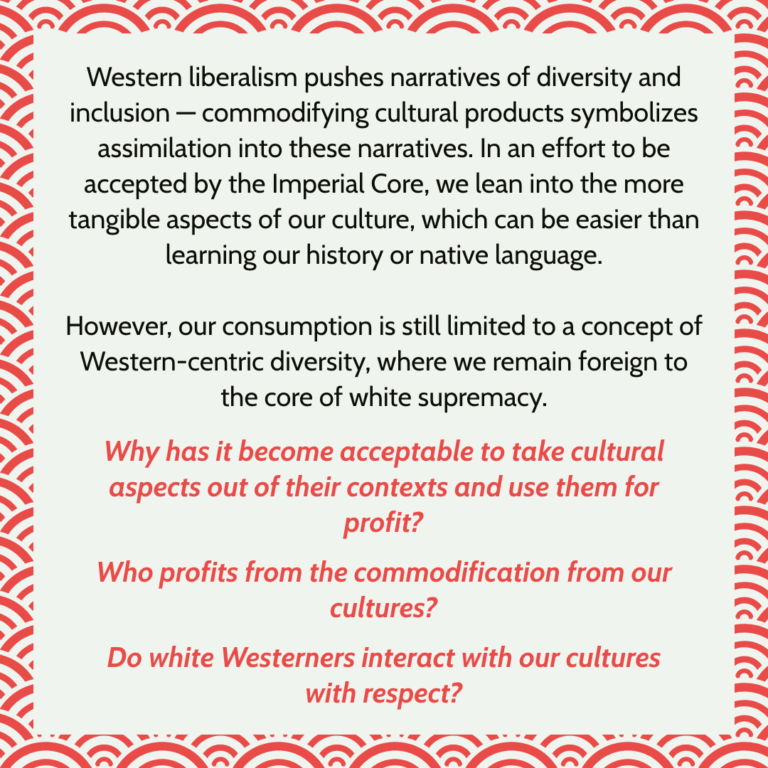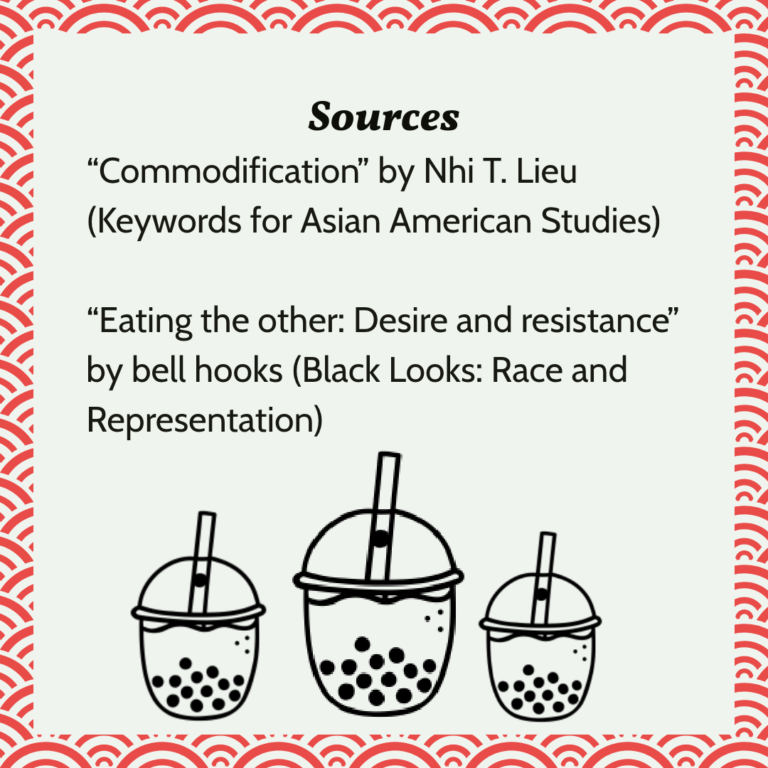What is cultural commodification?
Cultural commodification is a capitalist process in which cultural forms and practices are given economic value so that they may be bought and sold in a market.
For Asian cultures in the West, this process traces back to colonialism and imperialism which formed the basis for the “othering” of racialized subjects.
Commodification continues today as a part of globalized capitalist expansion.
Common form of cultural commodification and its impact
In the West, we usually identify commodification with cultural appropriation: traditional garments as Halloween costumes, religious symbols reprinted on mass-produced items, etc. But the commodification of Asian cultures goes beyond blatant appropriation—it includes the usage of Orientalist imagery in Western media and popular culture, and the reduction of cultures to a few consumable identifiers.
For example, Vietnamese culture is reduced to pho, ao dai, non la, and Buddhist iconography; Vietnam as a country is used as a prop in Western stories, especially about the American War in Vietnam.
When our cultures and aspects of our daily lives are turned into commodities, it influences how we see ourselves and interact with others in a capitalist society that seeks profit over community.
To understand how we have been impacted by the commodification of our cultures, we should not stop at simply calling out appropriation whenever we see it.
Commodification as a part of Orientalism
Due to racial constructs set up through colonialism and imperialism, Asians have historically been treated as foreign, exotic bodies in the West.
This foreignness can now be capitalized on by packaging aspects of our culture for mainstream consumption.
Only the most commodifiable parts (ie. acceptable for white Western consumption) of our cultural identities are allowed in the mainstream.
For example, the Disney movie Raya repackaged and commodified aspects of various Southeast Asian cultures for a Western audience.
Commodification further distances diaspora in the West from our complex cultural heritage.
Additionally, it maintains the capitalist status quo by assigning higher/lower economic value to different groups based on how they are perceived within a system ruled by white supremacy. This reinforces the idea that our worth is inherently tied to how consumable we are.
The pervasiveness of Japanese and et South Korean cultural products in the global economy furthers the idea that Western acceptance is what makes a country “developed.”
Part of the reason we view these countries as being “successful” is because of how consumable they are to a Western audience.
The self-commodification within the Asian diasporic communities
Asian diaspora have also internalized and participated in our own commodification. Reasons for such can include individual profit, as a survival tactic against xenophobia (by the white West), or as a way to form and practice cultural identity.
Not all of these motives are necessarily malicious, but as diaspora in the West, we need to realize that we are operating in a global capitalist system.
We are not in control of the production and dissemination of our own cultural products.
“When the dominant culture demands that the Other be offered as sign that progressive political change is taking place, that the American Dream can indeed be inclusive of difference, it invites a resurgence of essentialist cultural nationalism.” – bell hooks
Combatting cultural commodification
Western liberalism pushes narratives of diversity and inclusion — commodifying cultural products symbolizes assimilation into these narratives. In an effort to be accepted by the Imperial Core, we lean into the more tangible aspects of our culture, which can be easier than learning our history or native language. However, our consumption is still limited to a concept of Western-centric diversity, where we remain foreign to the core of white supremacy.
- Why has it become acceptable to take cultural aspects out of their contexts and use them profit?
- Who profits from the commodification from our cultures?
- Do white Westerners interact with our cultures with respect?
Sources
Commodification by Nhi T. Lieu (Keywords for Asian American Studies)
Eating the other: Desire and resistance by bell hooks (Black Looks: Race and Representation)

